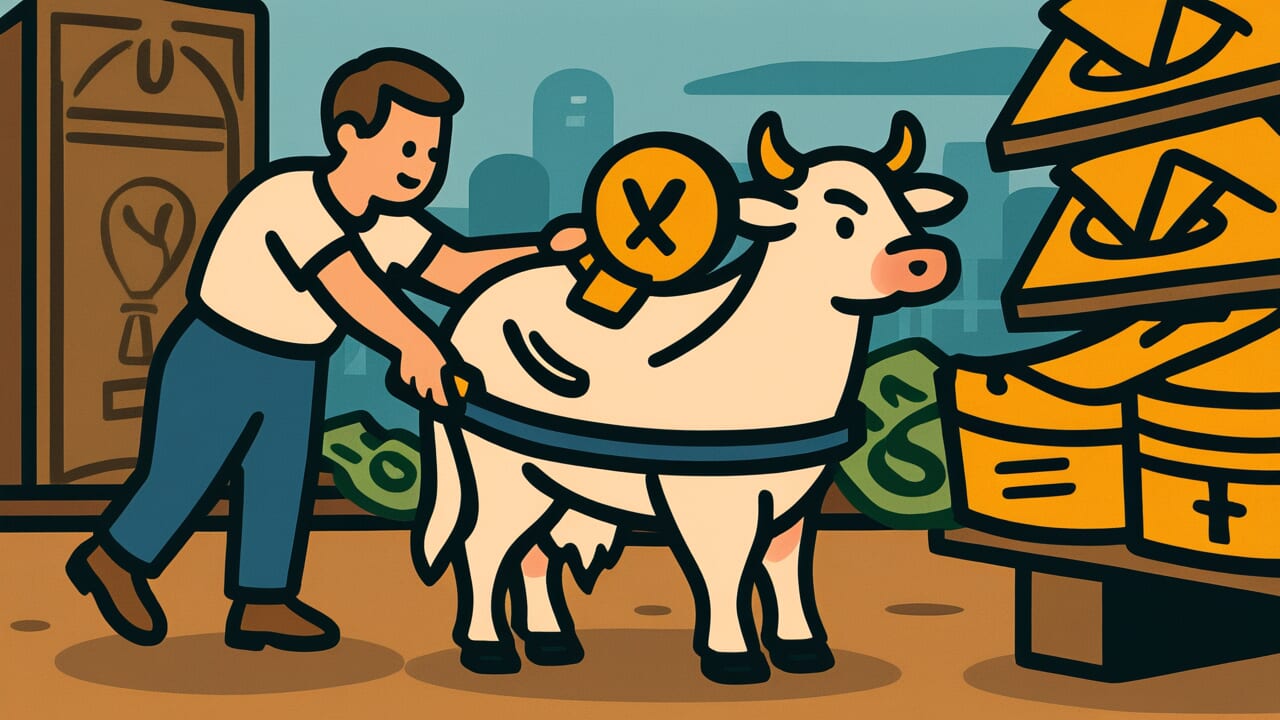How to Read “Sell the sword and buy a calf”
Katana wo urite koushi wo kau
Meaning of “Sell the sword and buy a calf”
“Sell the sword and buy a calf” is a proverb that warns against carelessly giving up something truly valuable to chase immediate benefits or needs, only to deeply regret it later.
This proverb is used when someone is about to make a poor judgment. For example, selling family heirlooms to cover living expenses.
Or abandoning qualifications and skills that form your career foundation to take an easy path. Or breaking trust relationships just to gain temporary advantage.
For a samurai, a sword was irreplaceable. A calf certainly has value, but not enough to trade for a sword.
This contrast highlights how serious the misjudgment is. Today, we understand this as a lesson about distinguishing truly valuable things from what merely looks attractive temporarily.
Origin and Etymology
No clear records exist about the exact origin of this proverb. However, the structure of the phrase reveals an interesting background.
First, let’s focus on the word “sword.” In Japan, a sword wasn’t just a weapon. It was called the soul of the samurai, a spiritual symbol.
It represented family pride and was a treasure passed down through generations. Letting go of such a precious sword carried far more weight than simply selling an object.
Meanwhile, a “calf” would eventually grow into useful livestock. But it doesn’t generate immediate profit. Raising it takes time and effort.
This contrast forms the core of the proverb’s meaning.
This saying probably originated in farming communities. It warned against situations like a struggling samurai selling his sword to start farming.
Or a merchant blinded by immediate profit, giving up important trust or assets. Our ancestors sharply understood human weakness—how people give up truly important things because “I need it right now.”
Usage Examples
- He abandoned his stable full-time position for a gambling-like investment scheme. It was a foolish choice, just like “sell the sword and buy a calf.”
- Betraying customer trust built over many years for immediate profit is like “sell the sword and buy a calf.”
Universal Wisdom
The proverb “Sell the sword and buy a calf” speaks to a fundamental human weakness. It’s the weakness of losing sight of what truly matters when captivated by immediate needs or attractions.
Why do people give up important things? Because the pain or desire of this very moment dominates the mind so strongly.
When you’re hungry, when you need money, when you want something, your vision narrows dramatically. You can’t see tomorrow, next year, or your whole life ahead.
This proverb has been passed down for hundreds of years because people keep repeating this mistake. Times change, technology advances, but the human heart works the same way.
We jump at immediate benefits, then later hold our heads thinking, “Why did I make that decision?” This pattern repeats endlessly.
Our ancestors deeply understood this human nature. That’s why they left warnings using concrete images.
The contrast between sword and calf isn’t just a metaphor. It continues to challenge us about the importance of developing eyes that can see the true essence of value.
When AI Hears This
A sword is a finished product. Sharpened and ready to use immediately. Thermodynamically speaking, this is a high-entropy state—a stable form that won’t change further.
Meanwhile, a calf is incomplete. It’s still growing, eating food, taking time to get bigger. This is a low-entropy state—a condition with room for orderly growth.
What’s interesting here is that raising a calf requires massive energy input. You continuously feed it grain, but about 90 percent of that grain’s energy is lost to body heat maintenance and movement.
Only about 10 percent accumulates as meat. This happens because energy conversion always involves loss, as the second law of thermodynamics shows.
Keeping a sword requires almost zero maintenance costs. But a calf needs daily feeding, care, and carries disease risks.
In other words, “investing in peace” is actually “high-cost order maintenance work.” Maintaining life as a low-entropy system requires constantly pouring in energy from outside.
The essence of this choice is giving up an immediately usable finished product to bet on an inefficient but growth-capable system.
The transition to agricultural society meant committing to continuously resist entropy increase.
Lessons for Today
This proverb teaches modern people the importance of not losing sight of life’s priorities.
Attractive choices surround us everywhere. New opportunities, easy solutions, instant gratification. But before jumping at those temptations, pause for a moment.
Is what you’re about to give up really okay to let go?
What matters is developing eyes that can see the essential value of things. It might be trust relationships built over time.
It might be skills or knowledge gained through hard work. Or perhaps your peace of mind, or bonds with important people.
When driven by anxiety or impatience, people make wrong judgments. That’s why, before making important decisions, take a deep breath and ask yourself.
“Is this really an equal exchange?” “Will my future self ten years from now regret this choice?”
The wisdom to discern what you truly need to protect in your life—that’s the real truth this proverb wants to convey.



Comments